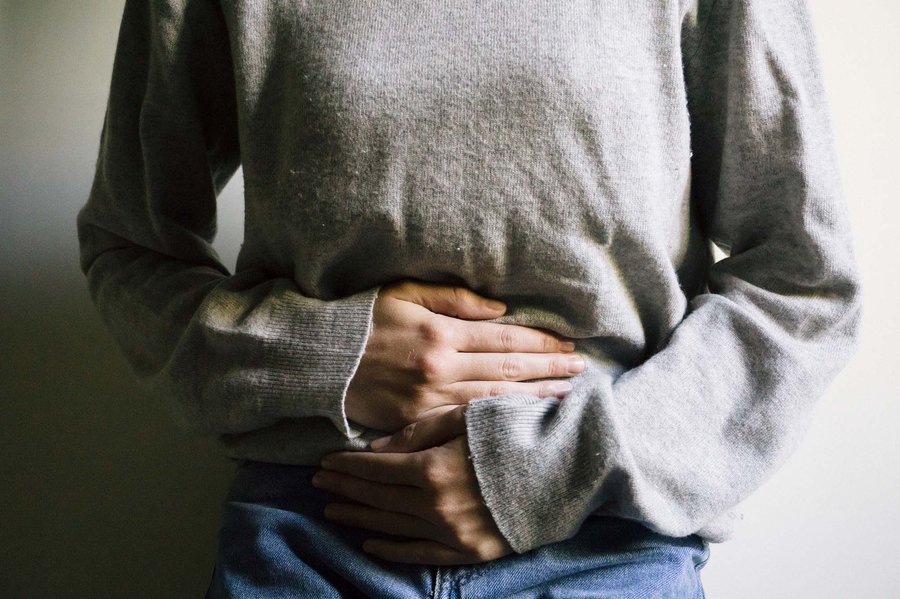Written by Judy Cho | Monday, 6 September 2021

Whilst some of us may rejoice at the idea of not having a period or experiencing premenstrual syndrome (PMS) symptoms, losing our period should signal a red flag.
Hypothalamic amenorrhea (HA) is a female health condition where women lose their menstrual periods (amenorrhea) for three months or longer.
The condition is caused by stress such as excessive physical activity, undereating, and psychological stress. When the body is under too much stress, the hypothalamus (an area of the brain) stops sending signals via the hypothalamic-pituitary axis to the reproductive organs. When this signalling stops, we cannot produce enough female sex hormones for menstruation to occur.
Individuals who have or had a history of restrictive eating, intense training, type A personality traits, and poor sleep habits are at greater risk for developing HA. Women do not have to be underweight to develop this condition. HA can occur at any weight and with or without weight loss.
HA requires a diagnosis of exclusion and all other reasons for amenorrhea must be ruled out before a proper diagnosis can be made. Amenorrhea may occur due to pregnancy, polycystic ovarian syndrome, premature ovarian failure, breastfeeding, menopause, and the use of certain medications (including mood stabilisers and the oral contraceptive pill). Additionally, HA is masked by hormonal contraceptive methods including the oral contraceptive pill and Mirena.
Investigating for HA requires physical examinations (such as a pelvic ultrasound), blood tests, pregnancy tests and health questioning. Although a delicate topic, in-depth health questioning on recent or past weight loss, eating patterns, personal stress and exercise habits are crucial to determine the cause of HA.
Furthermore, for adolescents or women who have lost their periods for six months or longer, a dual-energy x-ray absorptiometry (DXA) scan is recommended. Amenorrheic individuals have a 15% reduction in bone mineral density compared to non-amenorrheic individuals.
Our period is our 5th vital sign and having healthy periods is essential for good mood, energy, skin, cardiovascular and bone health.
HA results in hypoestrogenemia and inadequate estrogen levels can result in infertility, early-onset osteopenia or osteoporosis, cardiovascular complications, and mood disorders. It’s important to treat HA as early as possible to prevent these from occurring.
To heal from HA, one must address the root cause/s including low body weight, psychological stress, excessive exercise, and under-eating. Hence treatment will often require women to increase their energy (kJ) intake, reduce their physical activity (both intensity and duration) and gain weight.
However, with any lifestyle change, this can feel difficult and scary. A support network including a multidisciplinary team of healthcare practitioners, friends, family, and online support groups is vitally important. Social support is crucial for accountability and maintaining behavioural changes.
When presenting with amenorrhea, women are often prescribed the oral contraceptive pill (OCP) by their general practitioner. However, the OCP will not treat the root cause/s of HA or prevent further bone loss. Currently, there is limited evidence supporting the use of other hormonal therapies (including the estrogen patch) and bisphosphonates to prevent bone loss in women with HA. To this day, correcting the energy balance and addressing the other root causes are the primary approaches to treat HA.
It can be frustrating to make the necessary dietary and lifestyle changes but still not have a period. On average, it will take six months to recover from HA. Please be gentle with yourself and trust that your hard work will pay off. In the meantime, prioritise self-love & care. Spend time with loved ones (or Facetime if in lockdown), meditate, reduce screen time, and revisit old hobbies (drawing, singing, journaling, painting, anything really)!
Altayar, O., Al Nofal, A., Carranza Leon, B., Prokop, L., Wang, Z., & Murad, M. (2017). Treatments to Prevent Bone Loss in Functional Hypothalamic Amenorrhea: A Systematic Review and Meta-Analysis. Journal Of The Endocrine Society, 1(5), 500- 511. doi: 10.1210/js.2017-00102
Chou, S., & Mantzoros, C. (2018). Bone metabolism in anorexia nervosa and hypothalamic amenorrhea. Metabolism, 80, 91-104. doi: 10.1016/j.metabol.2017.10.009
Functional Hypothalamic Amenorrhea Symptoms. (2021). Retrieved 7 August 2021, from https://www.ccrmivf.com/hypothalamic-amenorrhea-infertility/
Genazzani, A., Chierchia, E., Santagni, S., Rattighieri, E., Farinetti, A., & Lanzoni, C. (2010). Hypothalamic amenorrhea: From diagnosis to therapeutical approach. Annales D'endocrinologie, 71(3), 163-169. doi: 10.1016/j.ando.2010.02.006
Liu, J., & Bill, A. (2008). Stress-Associated or Functional Hypothalamic Amenorrhea in the Adolescent. Annals Of The New York Academy Of Sciences, 1135(1), 179-184. doi: 10.1196/annals.1429.027
Meczekalski, B., Katulski, K., Czyzyk, A., Podfigurna-Stopa, A., & Maciejewska-Jeske, M. (2014). Functional hypothalamic amenorrhea and its influence on women’s health. Journal Of Endocrinological Investigation, 37(11), 1049-1056. doi: 10.1007/s40618-014-0169-3
Torbati, T., Dutra, E., & Shufelt, C. (2017). Hypothalamic Amenorrhea and the Long-Term Health Consequences. Seminars In Reproductive Medicine, 35(3), 256-262. doi: 10.1055/s-0037-1603581
Verheijden, M., Bakx, J., van Weel, C., Koelen, M., & van Staveren, W. (2005). Role of social support in lifestyle-focused weight management interventions. European Journal Of Clinical Nutrition, 59(1), 179-186. doi: 10.1038/sj.ejcn.1602194

Judy Cho is degree qualified clinical nutritionist who takes a ‘non-diet', holistic approach to health. Judy's four main passion areas are women's health, men's health, digestive health and mental health. Judy offers both in-person and online consultations in addition to functional testing, custom meal plans and dietary analysis. She guides and educates her clients with practical and sustainable dietary and lifestyle changes to support them in feeling their most vibrant and healthiest selves.